The best hard drive of 2025: top picks for long-term storage
Find our picks for the best hard drives for desktops
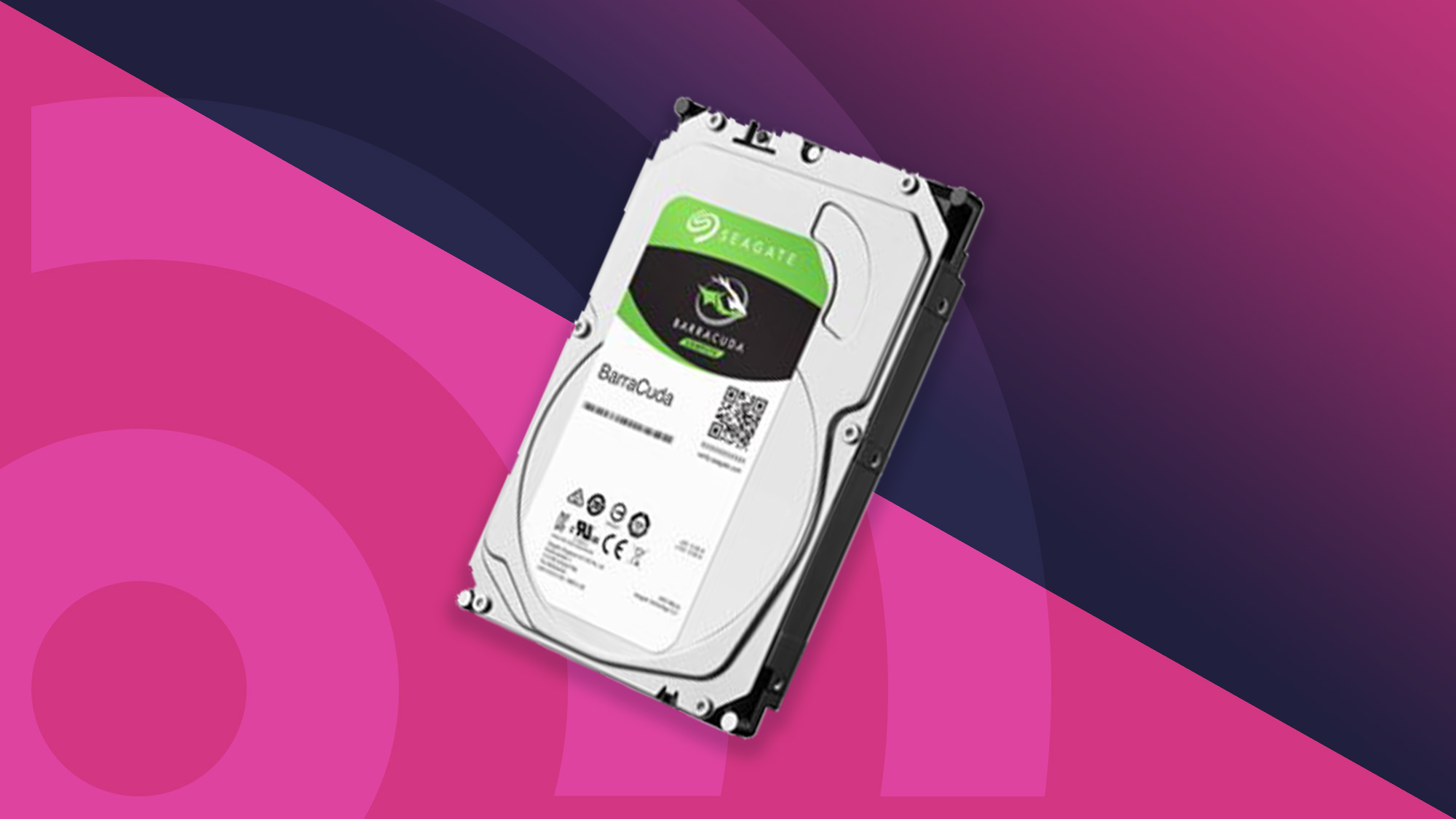
Finding the best hard drive for your needs often means balancing speed, storage space, and price.
While traditional HDDs can’t quite match the lightning-fast performance of the best SSDs, they stand out for their large storage capacities and affordability, making them a solid choice for bulk data storage.
One standout option for the best hard drive overall is the Seagate BarraCuda. Available in sizes from 500GB to a massive 8TB, it delivers an impressive blend of reliability, performance, and value, making it ideal for both everyday users and professionals.
If you’re on a tighter budget, the Western Digital Blue Desktop series is a fantastic choice. Known for its dependability and cost-effectiveness, it’s perfect for budget-conscious PC builds while still offering generous storage options—especially in the larger capacities.
Whether you’re upgrading your current setup or building a system from scratch, our expert recommendations will guide you to the best hard drive for your performance goals, storage requirements, and budget.
Best hard drives: Best overall
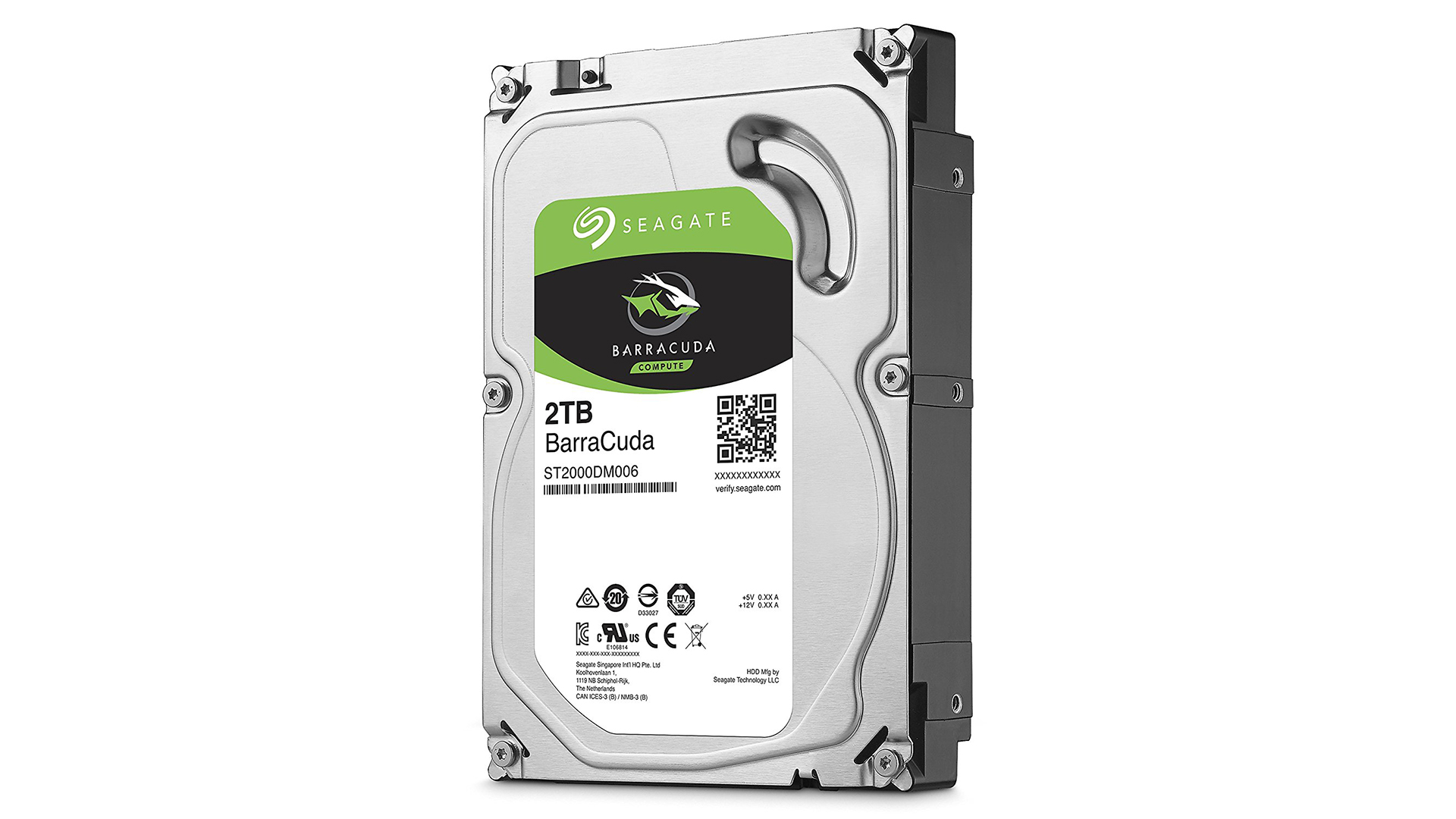
1. Seagate BarraCuda
Specifications
Reasons to buy
Reasons to avoid
It’s almost impossible to talk about hard drives without mentioning Seagate’s BarraCuda lineup – it’s a force to be reckoned with. And, it’s not hard to see why, Seagate BarraCuda drives offer a great gigabyte-per-dollar ratio and speed benefits to top it off.
While you can get capacities as small as 500GB, the 2TB model hits a sweet spot by balancing high performance and affordability. Since this drive combines 7,200rpm platters and high density data, so computers outfitted with this drive will be able to read data as fast as you'll get with an HDD.
And with Seagate's 5-year limited warranty, you can expect to get a lot of durability out of these hard drives. They aren't going to be nearly as fast as a NAND SSD, unfortunately, but with options of up to 14TB, you just can't beat the capacity an HDD like the Seagate BarraCuda affords you.
Best hard drives: Best budget
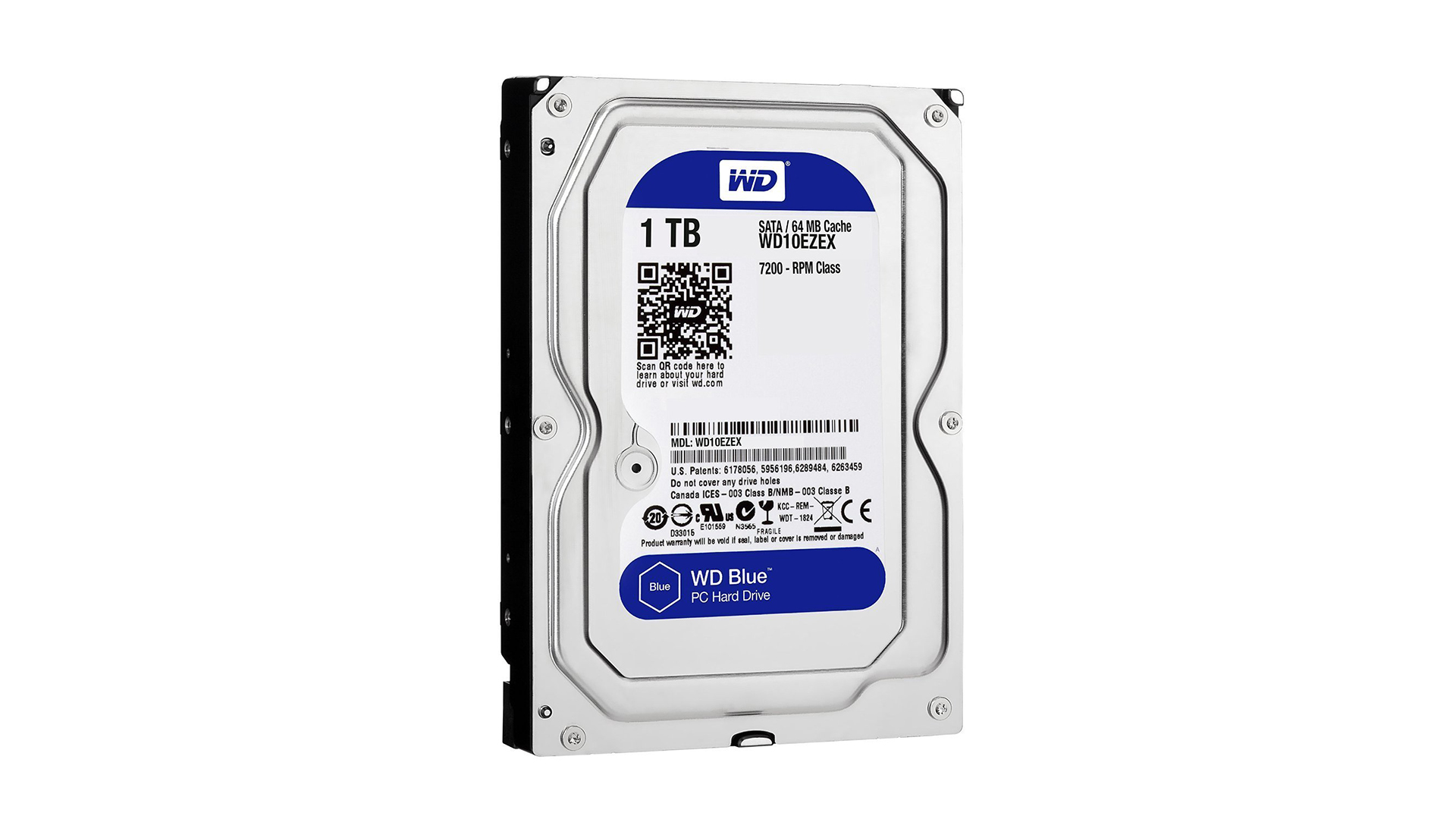
2. Western Digital Blue Desktop
Specifications
Reasons to buy
Reasons to avoid
Western Digital is about as established an HDD brand as it gets, and even today, it is putting out incredibly solid hard drives for long term storage at great prices. Nowhere is this more the case than with its line of WD Blue hard drives.
With a wide variety of storage options from a small 500GB to a capacious 6TB, the WD Blue is a viable pick for almost any type of PC build that’s sticking to a budget. The best value comes from the larger drives – they’ll give you much more storage per dollar spent.
And, if you’re looking for a bit more speed, there are also 7,200rpm models available that don’t come with too much of a price hike. As with any HDD, an SSD is going to offer you better speed, so your best bet here is to definitely go for capacity and value, which is the real strength of these drives.
Best hard drives: Best for gaming
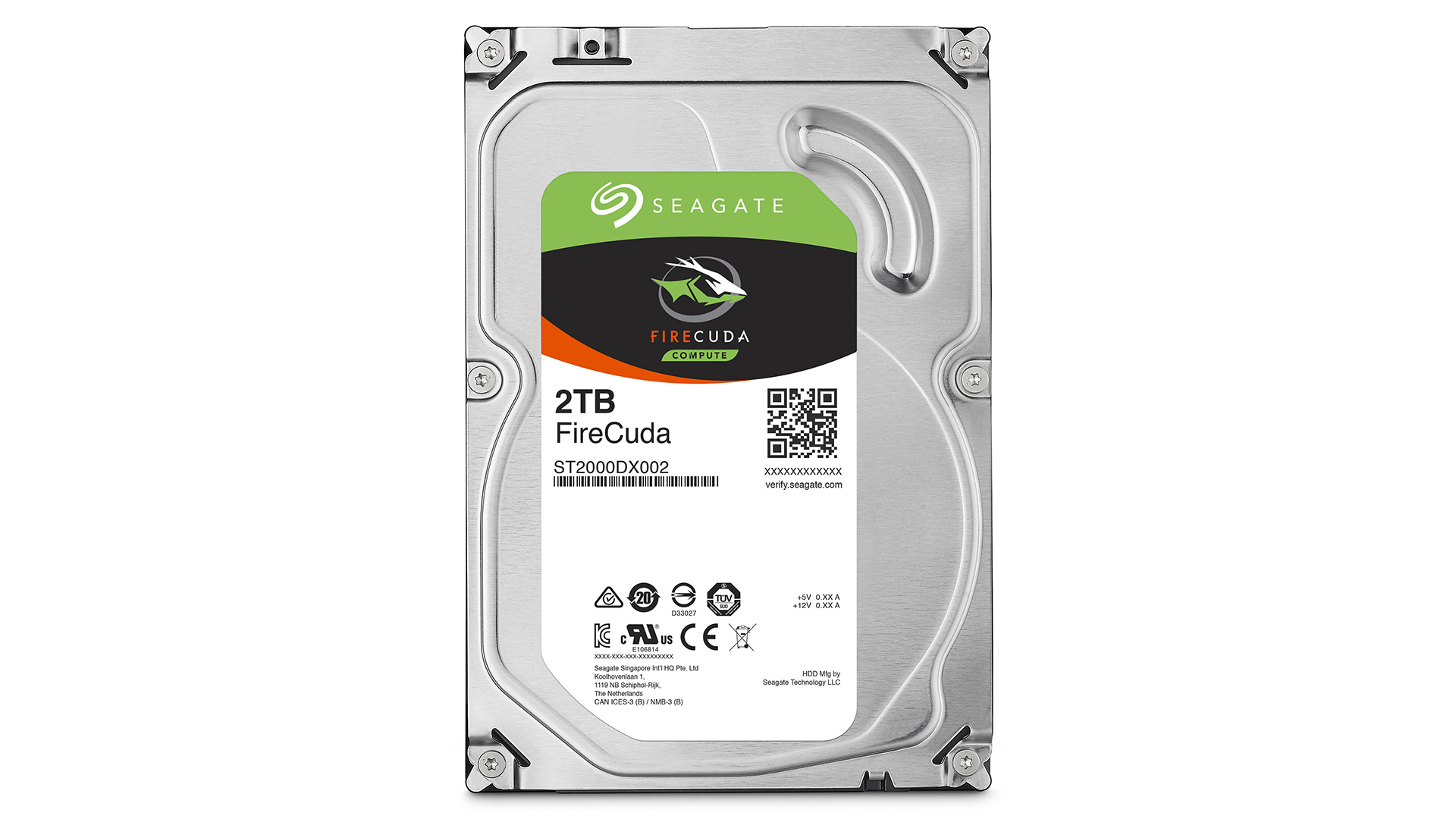
3. Seagate Firecuda Desktop
Specifications
Reasons to buy
Reasons to avoid
SSDs are incredibly popular, and it’s not hard to see why. But, if you need a lot of fast storage, and you don’t have a vault of cash, hybrid hard drives are a great option, especially for gaming.
The SeaGate FireCuda is the best hybrid hard drive on the market. It can fit up to 2TB of data, and then its 8GB of solid state cache storage learns which data you use most, so that you can access it quickly. That speed boost is even sweeter when you consider that this drive spins at 7,200rpm, so you're getting the best of both worlds.
With a 5-year warranty and an approachable price tag, it’s easy to see why this is one of the best hard drives you can buy today, especially for those with PC gaming in mind.
Best hard drives: Best high-capacity
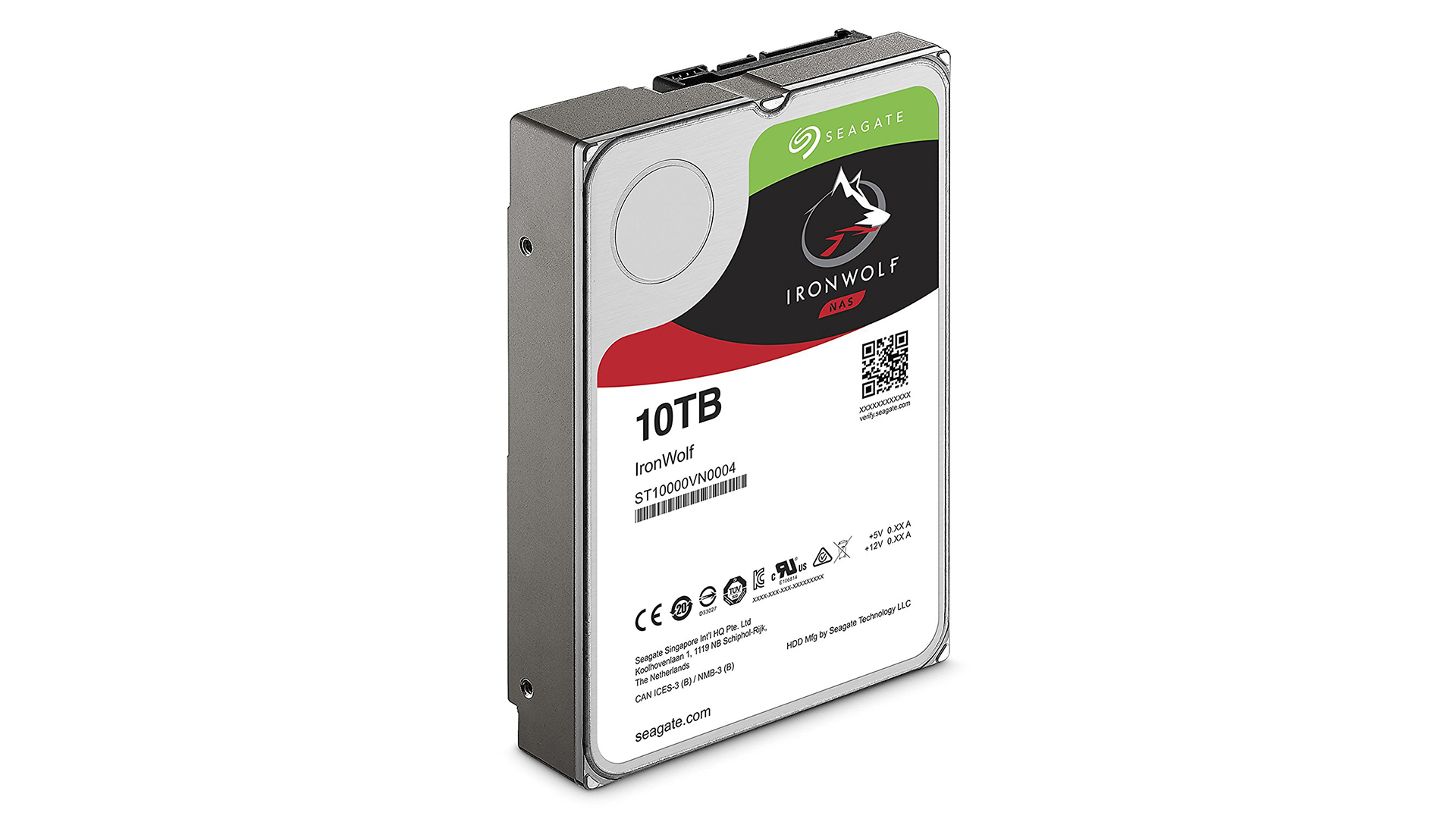
4. Seagate IronWolf NAS
Specifications
Reasons to buy
Reasons to avoid
It’s a little unfortunate that the Seagate IronWolf NAS drives come at a premium, but they aren’t priced much more expensively than a standard hard drive at their capacity. However, their native NAS optimization makes that premium totally worth it.
These drives are capable of running at a fast 7,200rpm spin rate 24/7 without having to worry about early drive failure, and if you have one of the best NAS devices for your business or home, the Seagate IronWolf NAS really is your best bet.
With up to 20TB drive capacities, you will get more storage than just about anywhere else with the IronWolf NAS drives from Seagate, which makes these especially good for long-term video and multimedia storage. That said, this isn't the kind of drive you'll want to use for day-to-day app and file storage, as random access speeds on a 20TB HDD is about as horrible as you'd imagine it is.
Best hard drives: Best external
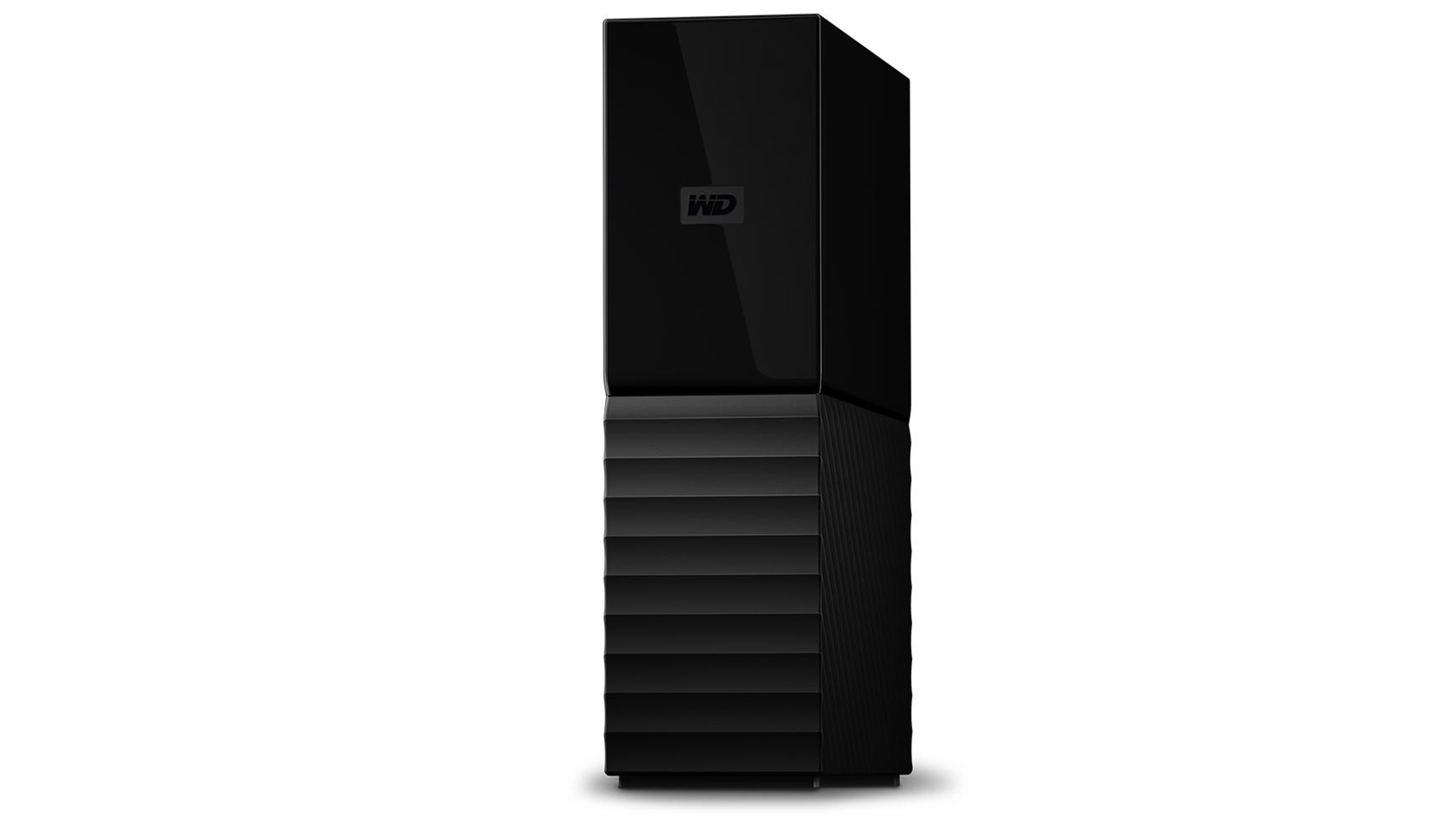
5. Western Digital My Book
Specifications
Reasons to buy
Reasons to avoid
Game consoles hard drives fill up fast with massive libraries. And, like laptops, the upgrade path for 2.5-inch hard drives isn’t all that great, but that’s where an external drive comes in.
The WD My Book strikes an amazing balance of storage and price, offering enough room for massive game libraries. Running on USB 3.0, it may not be quite as fast as an internal drive upgrade, but it will run games and offer more storage at a cheaper rate.
Best of all, because this is an external hard drive, you can take all your favorite games on the go. Or, if you're working on a major project that requires a certain degree of portability, the Western Digital My Book is also a great work storage device in a pinch thanks to its large capacity.
Find the best deals on Western Digital products with our Western Digital promo codes.
Why you can trust TechRadar
How to choose the best hard drive for you
When choosing the best hard drive, start by considering your primary needs—storage capacity, performance, and budget.
For everyday use and large media libraries, a high-capacity HDD offers the best value per gigabyte, often ranging from 1TB to 8TB or more.
If speed is a priority, look for drives with higher RPM ratings (7,200 RPM over 5,400 RPM) and larger cache sizes for faster data access.
Brand reliability is also crucial; trusted names like Seagate, Western Digital, and Toshiba consistently deliver long-lasting performance.
Also check your system’s interface options—most modern drives use SATA III, but ensure compatibility with your motherboard, especially if its more than a few years old.
Finally, factor in warranty length and customer reviews to gauge long-term dependability.
How we test
Testing hard drives isn't that much different than testing an SSD. Typically, this involves running file copy tests to measure the transfer times of very large files and folders, but it also includes testing the hard drives with benchmarking tools like CrystalDiskMark.
That tool in particular gives us a better, more detailed look at transfer speeds based on sequential read and write speeds – that is, how fast the drive reads and writes to large blocks of disk space in a line – as well as random read and write. The latter takes data blocks of varying sizes and copies them to the disk in random locations and then reads back data from random locations to better represent actual real world performance, since very large files are rarely written to a single block of free data on a hard drive.
Taken together, this gives us the best view of a hard drive's performance.
Read more on how we test, rate, and review products on TechRadar.
The best hard drives: FAQs
Which brand of hard drive is best?
There’s no definitive answer here, as every hard drive brand differs in terms of that Venn Diagram of speed, capacity, and cost.
However, as our guide highlights, you really can’t go wrong with a Seagate drive, and the Seagate BarraCuda happens to be one of the best examples we’ve seen when it comes to balancing these three important factors.
For sheer value for money, Western Digital offers some excellent (and comparatively low-coat) drives, such as the Blue Desktop, which provide you with acres of storage without breaking the bank.
What’s the difference between a hard drive and an SSD?
There are a few differences between a hard drive and an SSD, but it’s important to first note that they pretty much have the same job, they just function differently.
Traditional hard drives have a circular disk (platter) that stores your data - as the disk spins, the read-write arm reads data on the disc or writes data to it as it spins. Solid state drives (SSDs) have no moving parts, instead using NAND (Negative-AND) flash memory - the more memory chips an SSD has, the more storage capacity.
Price-wise, you’ll typically find that hard drives are less expensive than SSDs and offer quite a bit more storage capacity for a lower price. However, SSDs tend to be a lot faster than even the best hard drives because they don’t have to rely on moving parts like HDDs. The best SSDs can function up to 10 times faster than traditional hard drives.
There’s a third option in the SSD vs HDD conversation as well - hybrid drives (SSHDs) offer the speed of an SSD and the capacity of a traditional HDD in a single drive. An option like this would be great if you don’t have space for multiple hard drives and want the best of both worlds.
Is SSD or HDD better?
When it comes to which is better between an SSD vs HDD, it’s different strokes for different folks.
For speed and performance, you’re likely to find that SSDs will comfortably outperform most HDDs. An M.2 NVMe SSD for instance offers performance many times faster than the best HDD can offer.
On the flipside, HDDs offer significantly higher storage capacities than SSDs, and may therefore be the more practical choice when it comes to longer-term storage of files that aren’t required for regular use.
Today's best hard drive deals
Sign up for breaking news, reviews, opinion, top tech deals, and more.

John (He/Him) is the Components Editor here at TechRadar and he is also a programmer, gamer, activist, and Brooklyn College alum currently living in Brooklyn, NY.
Named by the CTA as a CES 2020 Media Trailblazer for his science and technology reporting, John specializes in all areas of computer science, including industry news, hardware reviews, PC gaming, as well as general science writing and the social impact of the tech industry.
You can find him online on Bluesky @johnloeffler.bsky.social
- Rob WebbContributing Writer